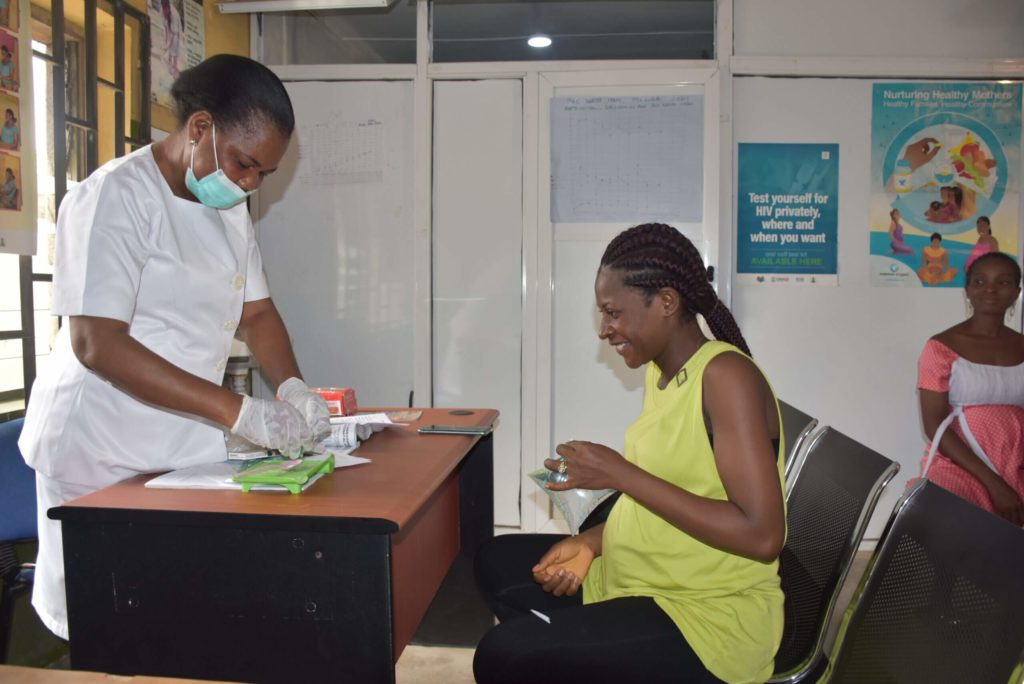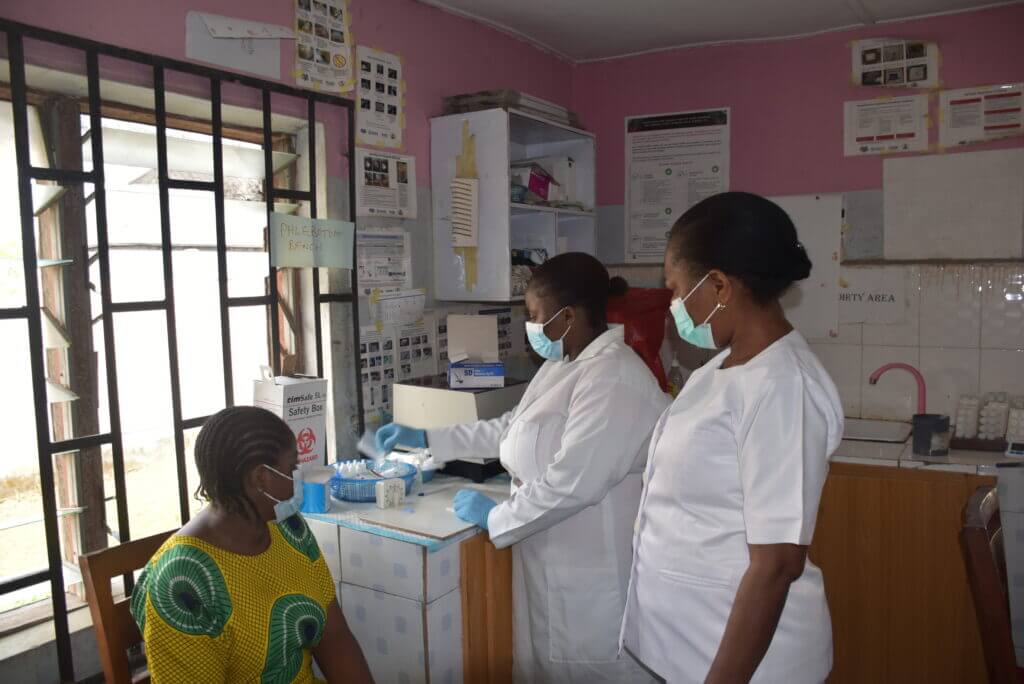From Childhood Dream to Reality: Mercy’s Mission to Save Mothers and their Children from Malaria
From Childhood Dream to Reality: Mercy’s Mission to Save Mothers and their Children from Malaria
This story was originally published by the U.S. President’s Malaria’s Initiative

Mercy Victor Bassey can recall exactly what started her on the path to the work she does today. When she was young, she saw mothers in her community losing their young children to malaria and was determined that when she grew up she would find a way to help mothers keep their children safe.
Since her first community health worker assignment in 1989 in Akwa Ibom State in southern Nigeria, Mercy has been educating women on how to protect themselves and their families from malaria and help their children thrive.
“I make deliberate efforts to inform people about malaria and share my experience on how I prevent myself and my children from getting ill with malaria,” Mercy said. “I often show some mothers how to use mosquito nets well.”
Today, Mercy manages the delivery of healthcare and malaria services at a West Itam Primary Health Center in Akwa Ibom State. She supervises the nurses and laboratory technicians who work at the clinic as well as the community health extension workers who take their expertise and malaria prevention tools, such as mosquito nets and medicines, on the road to reach patients who are unable to travel to the clinic for care.

Mercy draws on her training, funded by the U.S. President’s Malaria’s Initiative (PMI), to make sure the care and treatment provided by her clinic is based on best practices, like proper protocols for malaria testing, treatment, or referring severely sick patients to the hospital. Her clinic has seen the average positivity rate of patients tested for malaria at the clinic fall from 36 percent to under 27 percent, which she credits in part to the quality of preventive care provided by the clinic.
Making sure pregnant women receive regular doses of malaria medicine to keep them and their babies safe is another priority for the clinic. This is important as pregnant women are particularly vulnerable to the disease. Mercy and her staff talk with expectant mothers, answer their questions, and provide accurate information on malaria prevention and treatment, working hard to counteract traditional beliefs and myths that often suggest alternate – and ineffective – ways to prevent or treat malaria.
Around 25 percent of malaria deaths worldwide in 2020 were in Nigeria, and a quarter of those deaths were children under five. More than 95 percent of the Nigerian population is at risk of malaria. Recognizing that the battle to eliminate malaria from Nigeria is waged at the village level, PMI works with officials across the health system to improve the quality and access to services, especially for those in hard to reach places. PMI supports 515 public health facilities, such as the clinic Mercy manages, and has trained 416 community health workers, supporting an essential cadre of malaria-fighting workers who can bring care to communities outside of major urban centers.
Mercy sees her role in the community as going beyond health care work to also mentoring young women who want to follow in her footsteps in the fight against malaria. She is particularly proud of a young woman she has helped since childhood, supporting her with food, healthcare, and other needs. As the girl grew older, Mercy encouraged her to gain her qualification as a Junior Community Health Extension worker and funded her education. Her mentee now supports programs that educate women on the need to take medicine to prevent malaria in pregnancy.
Frontline workers like Mercy, and the knowledge and skills they share with others, are an essential part of Nigeria’s vision of a malaria-free future. Each day, the work Mercy and her colleagues undertake brings their communities one step closer to achieving that goal.
“I will continue to give girls, young women, pregnant women and mothers all the information and support they need to successfully prevent malaria,” Mercy said. “And together we can win the fight against malaria.”
Press Contact
Please direct all press inquiries to Jordan Coriza at jcoriza@msh.org or 617-250-9107